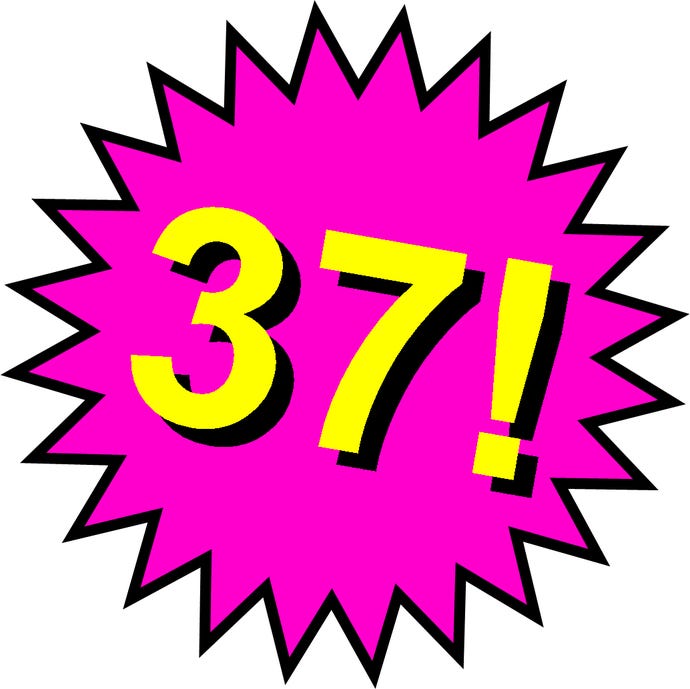What's better: random critical hits, or controlled crits?
A question of chance
Last time, you decided that little inconsequential choices are better than controlling a turret. I am pleased that quite a few people did actually pick turrets. But this week, in the name of experimentation, I'm trying an approach that seems frankly inefficient. What if we... picked between two similar things? While I can't imagine many will think this good, let's give it a go, for science. Tell me, what's better: random critical hits, or controlled critical hits?
Random critical hits

There you are, happily making numbers happen, when out of nowhere, AN EYECATCHING BIGGER NUMBER happens. This number could be 37, for example. Or perhaps 37! so you know you're meant to shout it aloud (and I trust you do, every time). It could even be 37. Or god, 37! But what if 37? Or even 37!? I need to sit down for a second, calm my heart, rest my throat from all this shouting. Wait, what if the game itself made a special noise to celebrate me and my eyecatching bigger number? Oh gosh.
Statistically, you could replace random critical hits by making all the numbers correspondingly larger and it would likely even out over time. But where's your sense of drama? The random crit jazzes up boring steady numbers into occasional surprise, gives those numbers personality, gives numbers the appearence of will, the appearance of an agenda. It's your saintly protector when it arrives in the nick of time, and your reviled nemesis when it refuses to. It's the 'will they, won't they' drama of your favourite sitcom. And don't even get me started on the generosity of pseudo-random crits, where developers ensure the odds eventually tip over, will always come round to your side.
At heart, video games are just tricks to make something fun out a computer doing sums, and what could be more elegant than a random number generator becoming a source of delight?
Controlled crits
But who's the boss, me or maths? Let me decide when an eyecatching bigger number happens, put me in charge of making that happen. Add a squishy organic element to the sums, putting my meat in the maths by making my ageing fingers aim for the weak spot, popping that head like a grape. Make me study the maths, learn the algorithms of an enemy's AI to press hard on part of the sums so they expose their weak point and it'll be me, me and my will and my wonderful brain and my nimble fingers that are to thank for that 37! And what joy to outright outwit the sums, sneak up on the algorithms and backstab them for that sweet 37! Even better to parry and counter 37! Or let me bank good sums, let me charge up a crit bar then make that good number happen on demand.
One model of human history is that when our ancestors flopped out of the primordial ooze, they unknowingly began a journey towards order. Across countless aeons and lifeforms, we modelled many facets of the world, began to recognise patterns, to bend patterns in our favour, to call our mastery of patterns 'knowledge', and to declare chaos passé. Surely the endpoint of this model of civilisation is wrestling critical hits from the clutches of randomness. If the miserable pile of tingly sand in your computer wants control of 37!, it can perform its own damn abiogenesis like the rest of us.
But which is better?
As much as I adore the skill of controlling my own crits, I think FPS announcers shouting "Headshot!" is super embarrassing, and I curse other games copying it as well as the people who modded it into games which wisely chose not to. Random crits it is!
The little embedded voting doodad seemed to work well last time, so let's continue with that.
Pick your winner, vote below, make your case in the comments, then we'll reconvene next week to see which thing stands triumphant—and continue the great contest.


